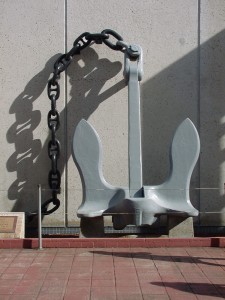HAP DOD Military Housing Assistance Program
Q. Who is eligible for Conventional HAP (Housing Assistance Program) assistance?- Active duty service members (military) and federal civilian employees assigned at or near the affected installation.
- Owner-occupant and assigned at or near the installation on the announcement date – military personnel who normally rotate back to the installation are also eligible.
- A NAFI employee at a facility operated in conjunction with the installation.
- A civilian or NAFI employee who is a U.S. citizen serving overseas at the time of the announcement, who is entitled to reemployment rights at the affected installation.
- Type of Employment of Service. The applicant must be a member of the Armed Forces; a Federal civilian employee at, or a NAFI employee, who is an American citizen, at or in conjunction with, the affected installation. Temporary employees serving under a time limitation, including reservists serving less than 180-consecutive day tours (10 U.S.C. Section 101 (d)(6)(a), and private contractors and employees of private contractors are not included.
- Place of Employment. The applicant must have been:
- a member of the Armed Forces assigned at or near the installation;
- a Federal civilian employee at a facility operated at, near, or in conjunction with the affected installation;
- a NAFI employee at a facility operated in conjunction with the installation, or
- a civilian or NAFI employee who is a U.S. citizen serving overseas at the time of the announcement, who is entitled to reemployment rights at the affected installation.
- Time of Employment. The applicant must have been:
- assigned to, or employed at, near, or in conjunction with the installation at the time of the announcement;
- transferred or terminated as a result of a reduction-in-force, within six months prior to the public announcement;
- transferred from the installation or activity on an overseas tour within three years prior to the public announcement of the closure action;
- a member of the Armed Forces transferred from the installation within four years prior to the public announcement who, because of his/her military specialty and assignment planning, anticipated repeated assignments to the installation, or
- serving overseas as a Federal employee, with existing reemployment rights to the affected installation at the time of the announcement.
- Owner/Occupant. The applicant must have owned and occupied the residence on the date of announcement; and
- Suffered at least a 5% loss of value in community and 5% home value loss.
ELIGIBILITY
Q. Who is eligible for Conventional HAP assistance?
- Active duty service members and federal civilian employees assigned at or near the affected installation.
- Owner-occupant and assigned at or near the installation on the announcement date – military personnel who normally rotate back to the installation are also eligible.
- A NAFI employee at a facility operated in conjunction with the installation.
- A civilian or NAFI employee who is a U.S. citizen serving overseas at the time of the announcement, who is entitled to reemployment rights at the affected installation.
- Type of Employment of Service. The applicant must be a member of the Armed Forces; a Federal civilian employee at, or a NAFI employee, who is an American citizen, at or in conjunction with, the affected installation. Temporary employees serving under a time limitation, including reservists serving less than 180-consecutive day tours (10 U.S.C. Section 101 (d)(6)(a), and private contractors and employees of private contractors are not included.
- Place of Employment. The applicant must have been:
- a member of the Armed Forces assigned at or near the installation;
- a Federal civilian employee at a facility operated at, near, or in conjunction with the affected installation;
- a NAFI employee at a facility operated in conjunction with the installation, or
- a civilian or NAFI employee who is a U.S. citizen serving overseas at the time of the announcement, who is entitled to reemployment rights at the affected installation.
- Time of Employment. The applicant must have been:
- assigned to, or employed at, near, or in conjunction with the installation at the time of the announcement;
- transferred or terminated as a result of a reduction-in-force, within six months prior to the public announcement;
- transferred from the installation or activity on an overseas tour within three years prior to the public announcement of the closure action;
- a member of the Armed Forces transferred from the installation within four years prior to the public announcement who, because of his/her military specialty and assignment planning, anticipated repeated assignments to the installation, or
- serving overseas as a Federal employee, with existing reemployment rights to the affected installation at the time of the announcement.
- Owner/Occupant. The applicant must have owned and occupied the residence on the date of announcement; and
- Suffered at least a 5% loss of value in community and 5% home value loss.
BENEFITS
Q. What is the basis for HAP benefits?

Anchor for Military Ship at Pearl Harbor Hawaii

Military homeowners assistance program hap

Comments(0)